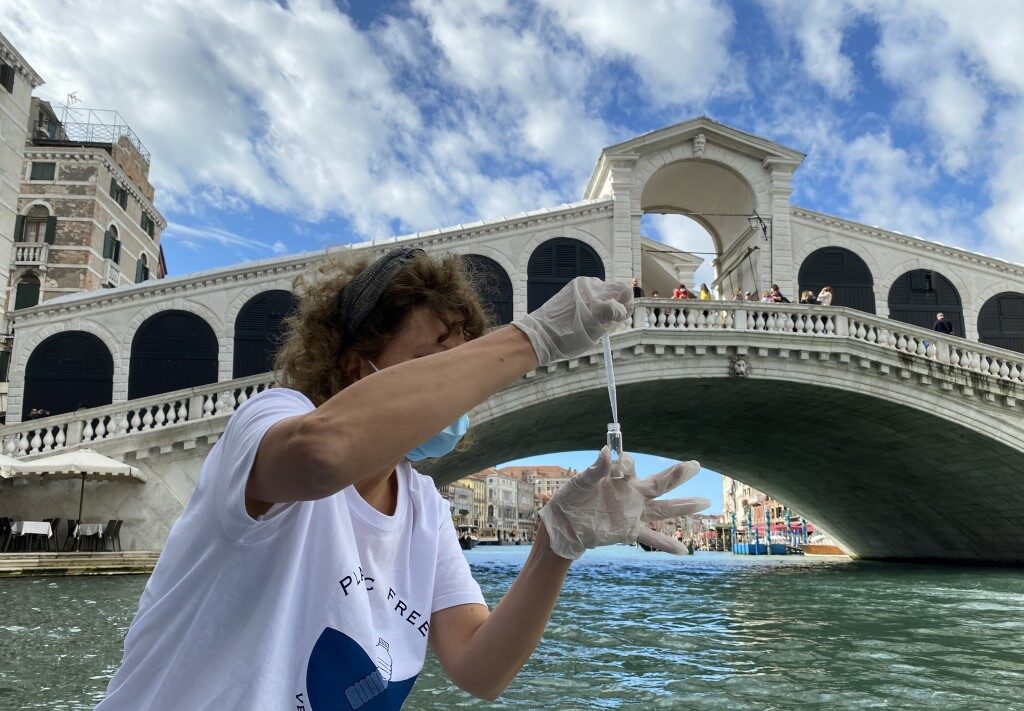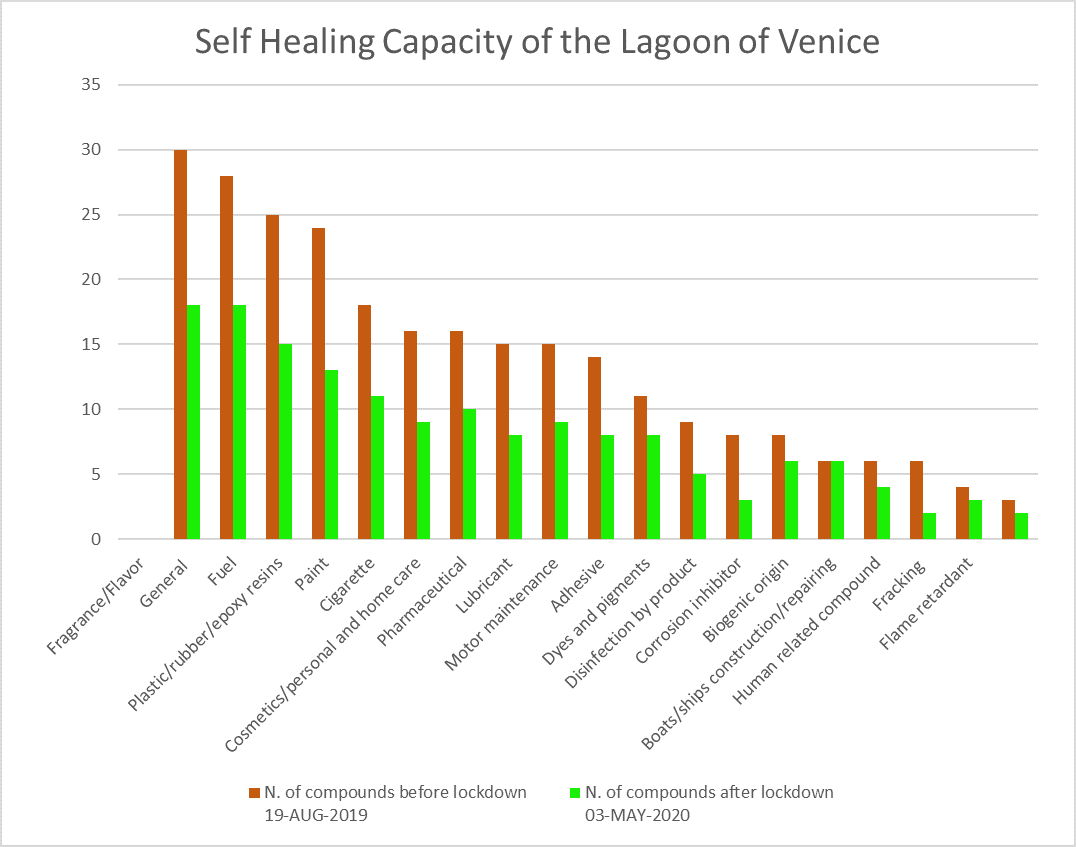We are delighted to announce that a new and groundbreaking contribution of Prof. T. Cecchi from the ITT Montani Technical Institute (IT) is being published in the prestigious international journal Science of the Total Environment. The article is the very first study on plastic related molecules in the sea. It also details the variation of their presence in Venice historic city centre’s waters before and after COVID-19 restrictions.
Venice Lagoon Plastic Free has provided water sampling pre and post COVID-19 lockdown, and encouraged to pursue this research to popularize results and raise awareness among decision-makers and citizens.
COVID-19 lockdown reveals human impact on microplastic and mass tourism-related pollutants and showcases the environment’s self-healing capacity in Venice’s World Heritage Site and its lagoon. The work largely relied on the infield support and contribution of our Association that formally cooperates with the Institute Montani at the scientific and technical level. Further investigations are ongoing, with other scientific outcomes expected in the upcoming months, also in the frame of the EU H2020 projects In-No-Plastic and MAELSTROM.
Article’s highlights:
- The first study on the presence of VOCs linked to anthropic activities in Venice water
- Plastic marine litter and mass tourism molecular fingerprint in a UNESCO site
- The first study on marine litter and mass tourism chemicals persistence in sea
- Marine litter is harmful per se and for chemical pollutants release
- Lockdown restrictions caused the sharp drop of seawater contaminants
Article’s Abstract
The Lagoon of Venice is a continuously evolving ecosystem that rapidly responds to anthropic stressors. The UNESCO World Heritage site “Venice and its Lagoon” is one of the top tourist destinations in the world. Mass tourism increases marine litter, water traffic emissions, solid waste and sewage release. Plastic marine litter is not only a major aesthetic problem diminishing tourists experience of Venice, it also leaches contaminants into the seawater. Since there is a dearth in the literature regarding microplastic leachable compounds and overtourism related pollutants, the project studied the Head Space-Solid Phase Micro Extraction-Gas Chromatography-Mass Spectrometry (HS-SPME-GC–MS) molecular fingerprint of volatile lagoon water pollutants, to gain insight into the extent of this phenomenon in August 2019. The chromatographic analyses enabled the identification of 40 analytes related to the presence of polymers in seawater, water traffic, and tourists habits. In Italy, on the 10th March 2020, the lockdown restrictions were enforced to control the spread of the SARS-CoV-2 infection; the ordinary urban water traffic around Venice came to a halt, and the ever-growing presence of tourists suddenly ceased. This situation provided a unique opportunity to analyze the environmental effects of restrictions on VOCs load in the Lagoon. 17 contaminants became not detectable after the lockdown period. The statistical analysis indicated that the amounts of many other contaminants significantly dropped. The presence of 9 analytes was not statistically influenced by the lockdown restrictions, probably because of their stronger persistence or continuous input in the environment from diverse sources. Results signify a sharp and encouraging pollution decrease at the molecular level, concomitant with the anthropogenic stress release, even if it is not possible to attribute quantitatively the VOCs load variations to specific sources (e.g., tourists’ habits, urban water traffic, plastic pollution).

